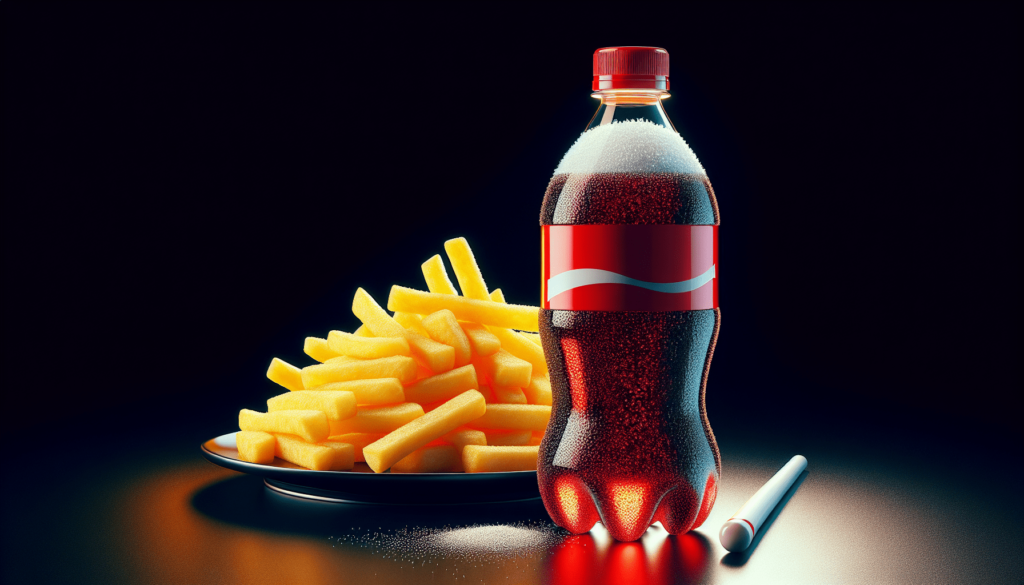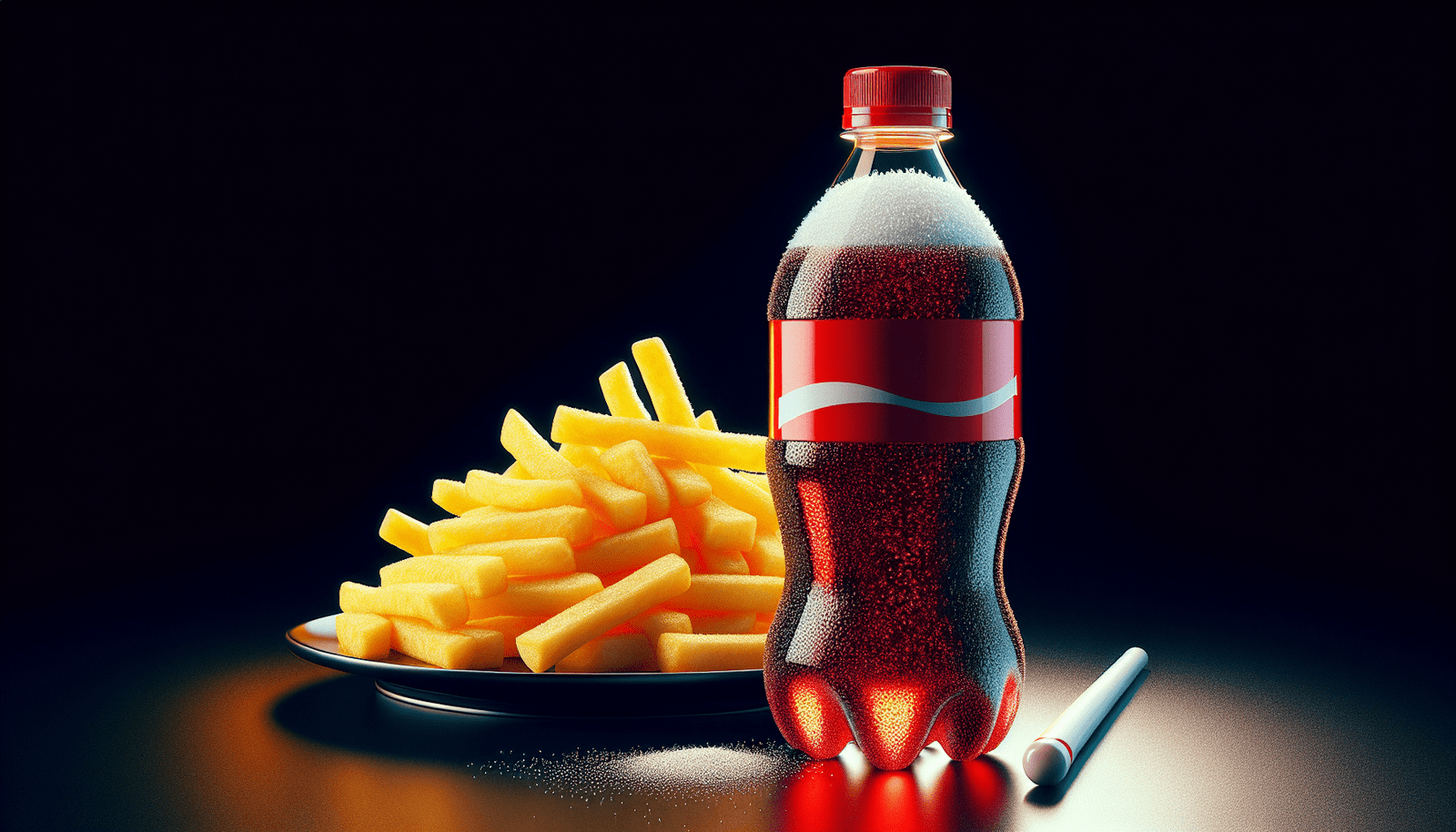Welcome to a guide on what food and drink to avoid with diabetes. It’s important to be mindful of what you consume to manage your diabetes effectively. By avoiding high-sugar, high-carb foods and sugary beverages, you can help regulate your blood sugar levels and maintain a healthier lifestyle. Let’s explore some common culprits that you may want to steer clear of when living with diabetes. As you navigate managing your diabetes, one of the most important aspects is understanding what foods and drinks to avoid. Making the right choices when it comes to your diet can have a significant impact on your blood sugar levels and overall well-being. In this article, we will explore the foods and drinks that should be avoided or limited if you have diabetes.
Understanding the Impact of Food and Drink on Diabetes
When you have diabetes, it’s essential to pay close attention to what you eat and drink. Certain foods and beverages can cause your blood sugar levels to spike, leading to potential complications. By being mindful of what you consume, you can better manage your diabetes and improve your overall health.
How Certain Foods and Drinks Affect Blood Sugar Levels
Certain foods and drinks can have a more significant impact on your blood sugar levels than others. Carbohydrates, in particular, can cause your blood sugar to rise quickly. Foods that are high in refined sugars, such as sodas, candies, and baked goods, can lead to rapid spikes in blood sugar levels. On the other hand, foods high in fiber, protein, and healthy fats tend to have a more gradual effect on blood sugar levels.
Foods and Drinks to Avoid with Diabetes
When it comes to managing your diabetes, certain foods and drinks should be limited or avoided altogether. By being aware of these items, you can better control your blood sugar levels and reduce the risk of complications associated with diabetes.
Sugary Beverages
One of the most significant culprits when it comes to raising blood sugar levels is sugary beverages. Sodas, fruit juices, energy drinks, and sweetened teas can all lead to dramatic spikes in blood sugar. It’s essential to avoid these beverages and opt for water, unsweetened teas, or diet sodas instead.
Refined Grains
Foods made with refined grains, such as white bread, white rice, and pasta, can also cause blood sugar levels to rise quickly. These foods are stripped of their fiber content, leading to a rapid spike in blood sugar. Instead, choose whole grains like whole wheat bread, brown rice, and quinoa, which are higher in fiber and have a more gradual impact on blood sugar levels.
Processed Foods
Processed foods, such as chips, crackers, and fast food, are often high in unhealthy fats, sugar, and salt. These foods can lead to spikes in blood sugar and contribute to weight gain, which can worsen diabetes symptoms. Opt for whole, unprocessed foods like fruits, vegetables, lean proteins, and whole grains to better manage your blood sugar levels.
Sugary Treats
While it’s okay to indulge in treats occasionally, regularly consuming sugary foods like cookies, cakes, and candies can wreak havoc on your blood sugar levels. These foods are high in refined sugars and offer little nutritional value. If you have a sweet tooth, try healthier alternatives like fresh fruit, Greek yogurt with berries, or dark chocolate in moderation.
High-Fat Foods
Foods high in unhealthy fats, such as fried foods, fatty cuts of meat, and full-fat dairy products, can also impact your blood sugar levels. These foods are often calorie-dense and can lead to weight gain if consumed in excess. Opt for healthier fats like avocados, nuts, seeds, and olive oil, which can help improve insulin sensitivity and protect your heart health.

Making Smart Choices for Better Blood Sugar Control
Managing your diabetes involves making smart choices about what you eat and drink. By avoiding or limiting certain foods and beverages, you can better control your blood sugar levels and improve your overall health. Here are some tips for making smart choices when it comes to your diet.
Read Nutritional Labels
When shopping for groceries, take the time to read the nutritional labels on food packaging. Look for items that are low in added sugars, sodium, and unhealthy fats. Pay attention to serving sizes to ensure you are consuming an appropriate amount of carbs, protein, and fiber.
Monitor Portion Sizes
Portion control is essential when managing diabetes. Even healthy foods can cause blood sugar spikes if consumed in large quantities. Use measuring cups, spoons, or a food scale to help you accurately portion out your meals and snacks. Eating smaller, more frequent meals throughout the day can also help stabilize your blood sugar levels.
Opt for Whole Foods
When planning your meals, focus on incorporating whole, unprocessed foods whenever possible. Fruits, vegetables, lean proteins, whole grains, and healthy fats should make up the bulk of your diet. These foods are nutrient-dense and can help regulate blood sugar levels, improve insulin sensitivity, and promote overall health.
Stay Hydrated
Proper hydration is essential for managing diabetes. Drinking plenty of water throughout the day can help flush out excess sugars from your bloodstream and prevent dehydration, which can affect blood sugar levels. Limit your consumption of sugary beverages and opt for water, unsweetened teas, or sparkling water instead.
Be Mindful of Alcohol
Alcohol can affect blood sugar levels and interfere with diabetes medication, so it’s essential to consume it in moderation. Limit your alcohol intake to one drink per day for women and two drinks per day for men, and avoid sugary mixed drinks and cocktails. Opt for light beer, dry wine, or spirits mixed with seltzer water or a sugar-free mixer.
Conclusion
Managing diabetes involves making conscious choices about what you eat and drink. By avoiding or limiting sugary beverages, refined grains, processed foods, sugary treats, and high-fat items, you can better control your blood sugar levels and reduce the risk of complications associated with diabetes. Focus on whole, unprocessed foods, practice portion control, stay hydrated, and be mindful of alcohol consumption to improve your overall health and well-being. Remember, making small changes to your diet can have a significant impact on managing your diabetes and living a healthier life.



